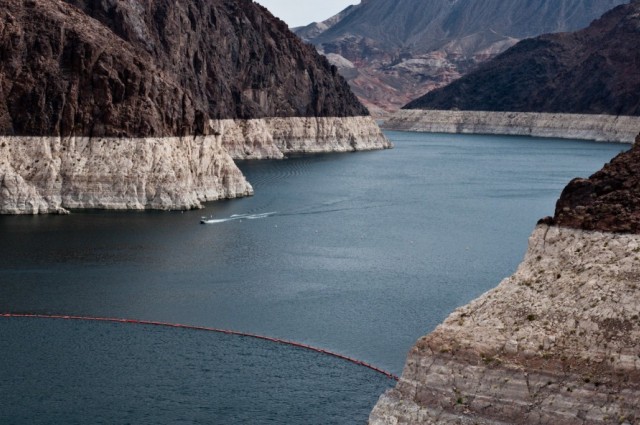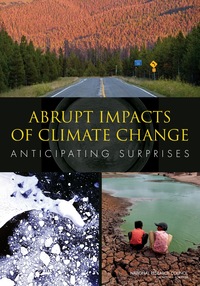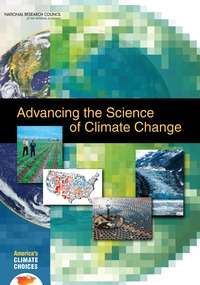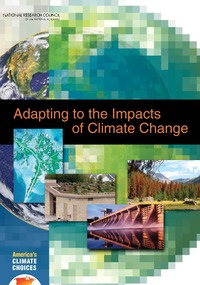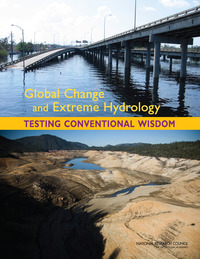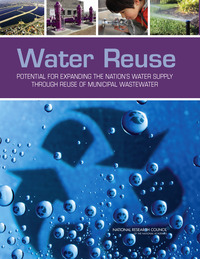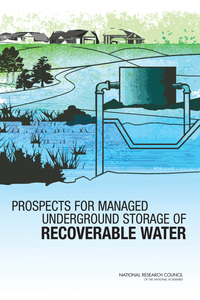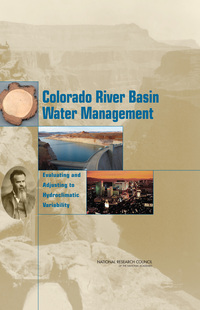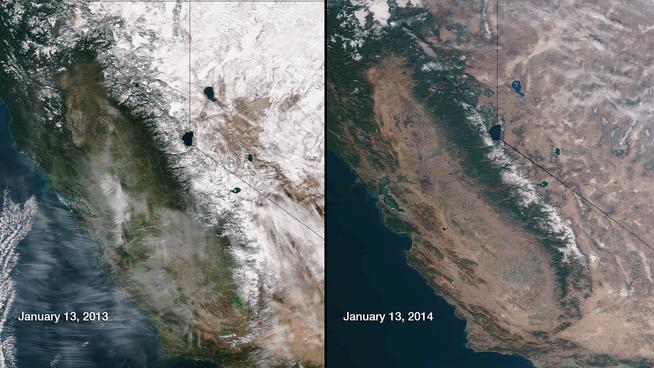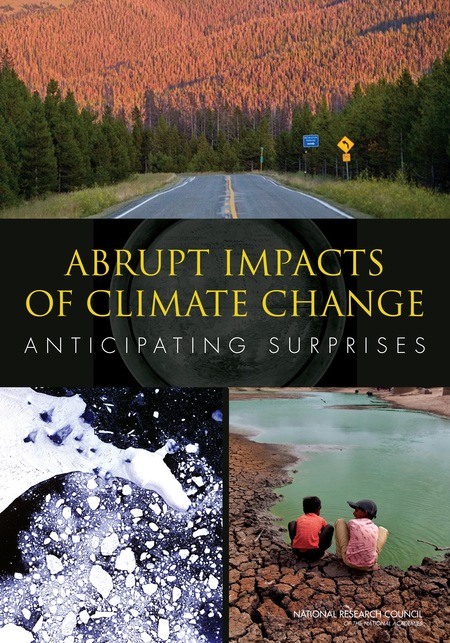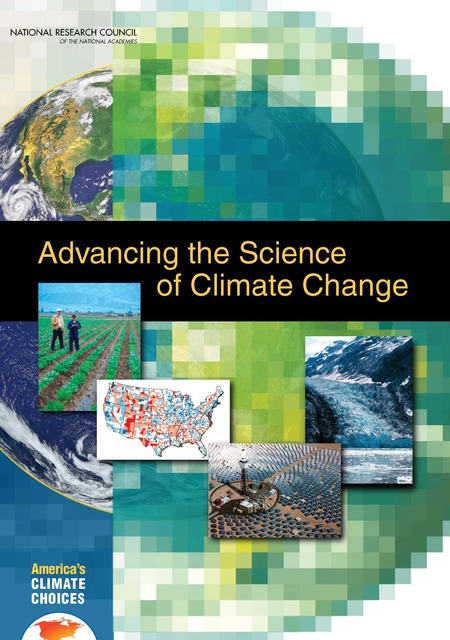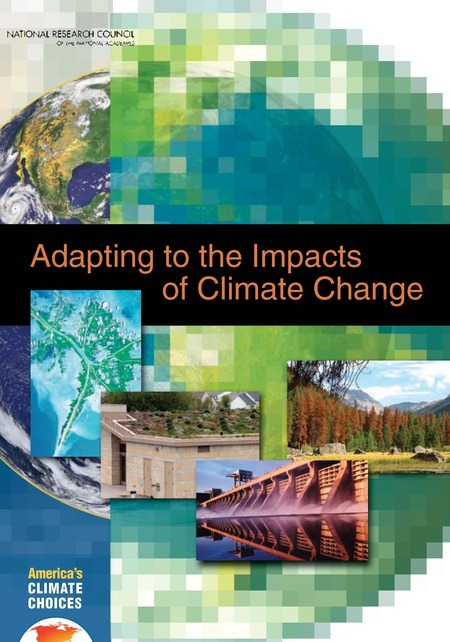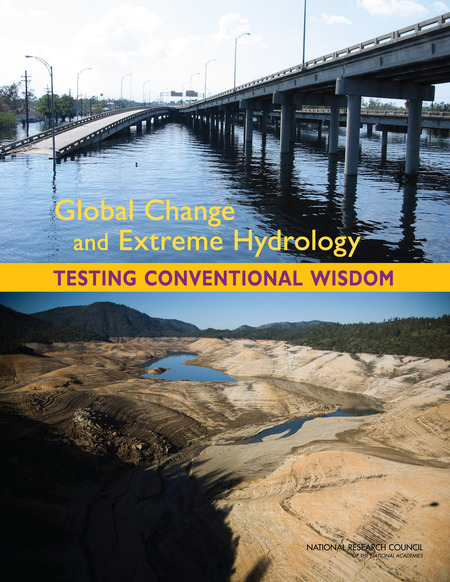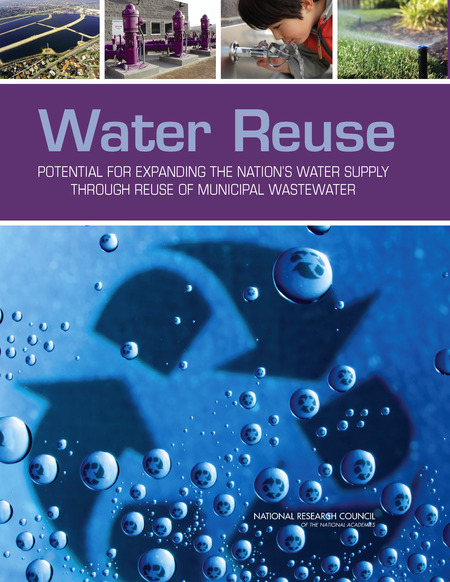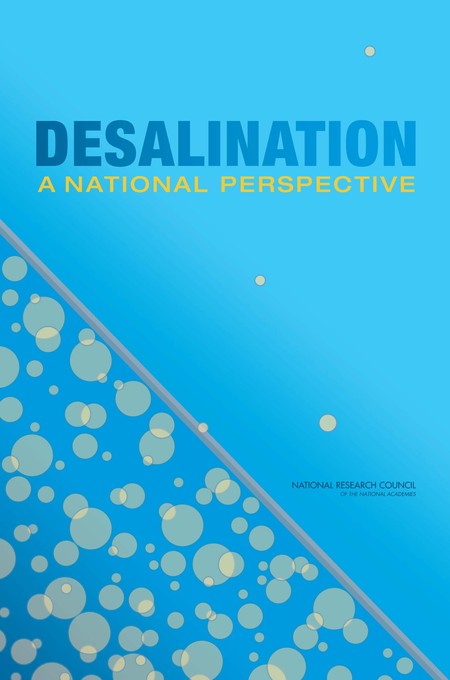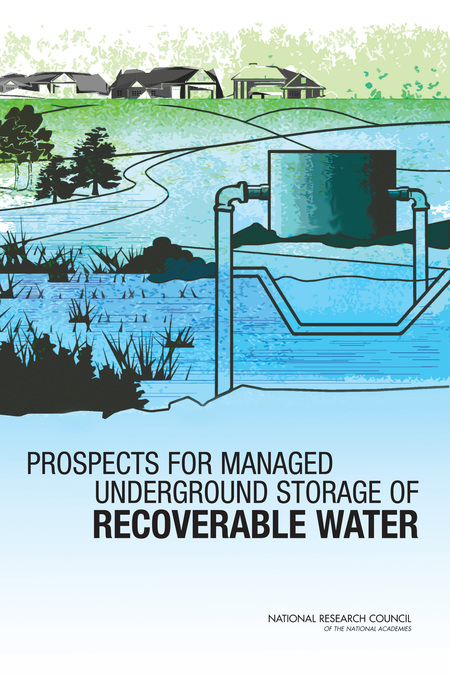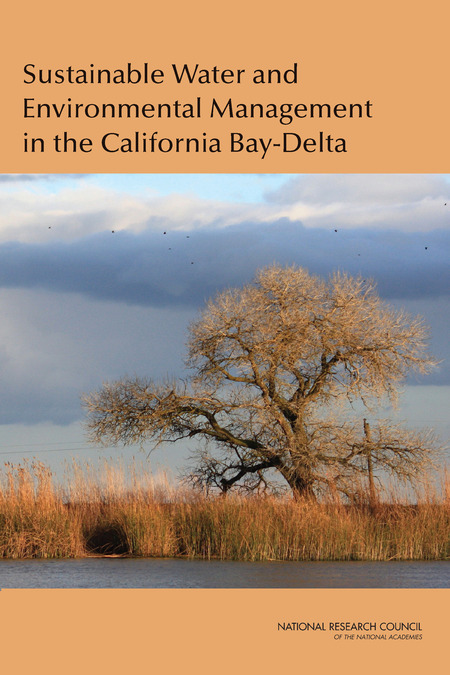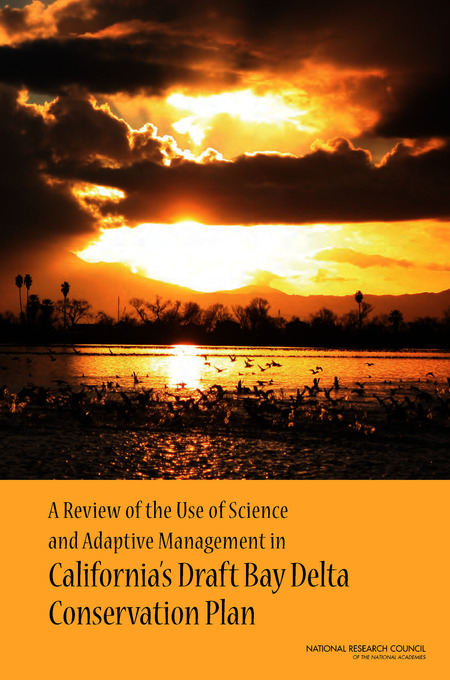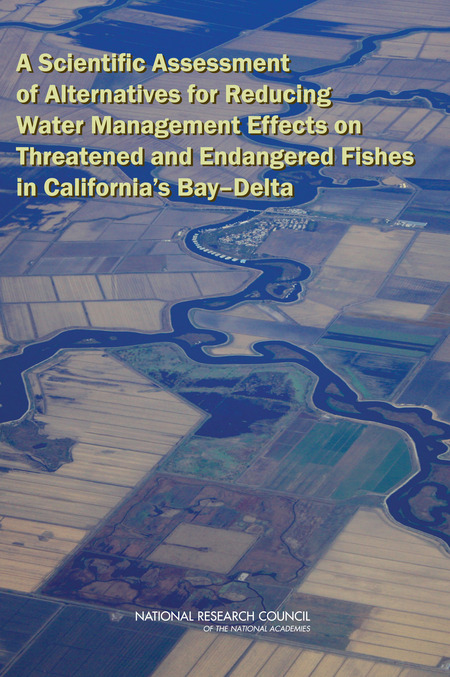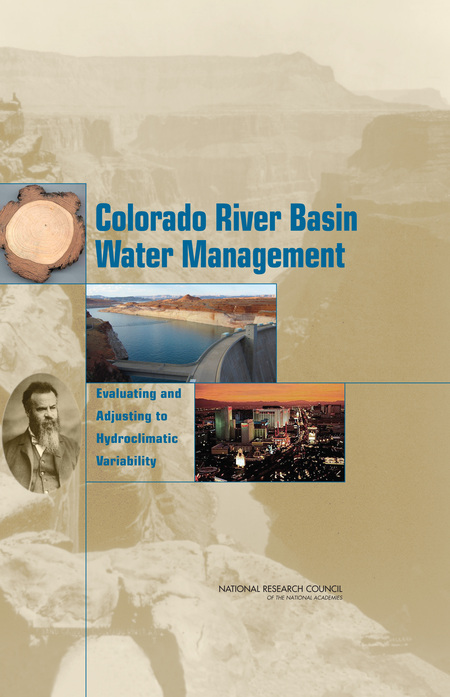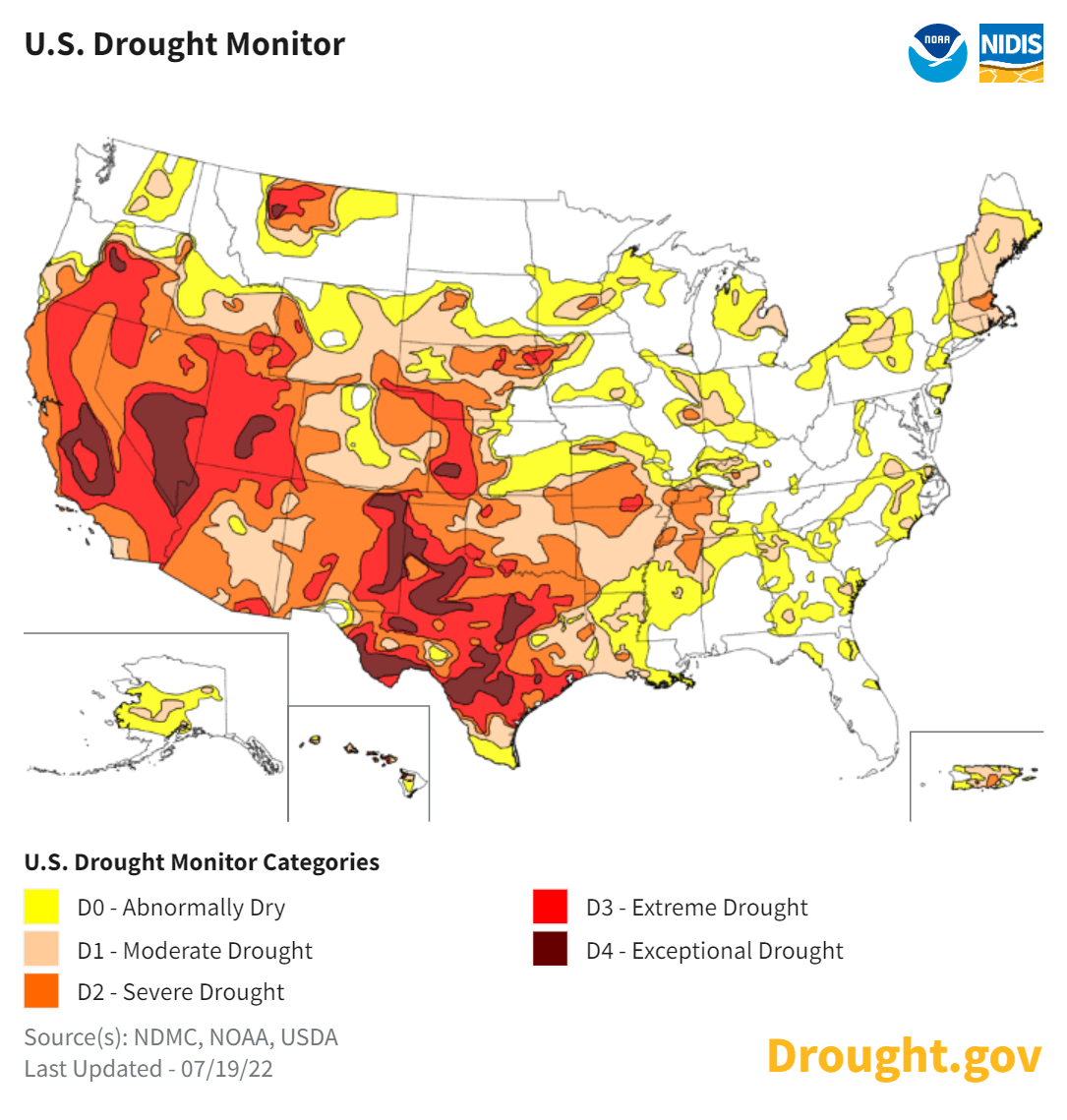
Warmer temperatures and shifts in precipitation patterns are expected to exacerbate drought conditions that already pose serious challenges for agricultural and municipal water managers in the U.S. West and other places. The effects of drought are far-reaching, beyond the local affected areas. Communities far from drought centers experience smoke from wildfires, changes in pricing and availability of produce, and the loss – temporary or permanent – of priceless natural resources. Our publications explore impacts of drought on transportation, environmental effects, and ways to adapt to this “new normal”. As always, all are free to read online or download.

Wildland fires pose a growing threat to air quality and human health. Fire is a natural part of many landscapes, but the extent of area burned and the severity of fires have been increasing, concurrent with human movement into previously uninhabited fire-prone areas and forest management …[more]

Frameworks for Protecting Workers and the Public from Inhalation Hazards
Individuals in the United States and Americans abroad are exposed to inhalation hazards from a variety of sources, and these hazards can have both short- and long-term adverse effects on health. For example, exposure to wildfire smoke, which contains particulate matter and toxic chemicals, can …[more]

Investing in Transportation Resilience: A Framework for Informed Choices
Significant progress has been made over the last decade in integrating resilience criteria into transportation decision-making. A compelling case remains for investing in making transportation projects more resilient in the face of increasing and intensifying storms, floods, droughts, and other …[more]

California and other wildfire-prone western states have experienced a substantial increase in the number and intensity of wildfires in recent years. Wildlands and climate experts expect these trends to continue and quite likely to worsen in coming years. Wildfires and other disasters can be …[more]

Water of appropriate quantity and quality is essential for drinking, sanitation, and food, energy, and industrial production for any society and is derived for most needs from surface- or groundwater sources. Studies suggest that groundwater use in irrigation globally is increasing in total …[more]

Enhancing Urban Sustainability with Data, Modeling, and Simulation: Proceedings of a Workshop
On January 30-31, 2019 the Board on Mathematical Sciences and Analytics, in collaboration with the Board on Energy and Environmental Systems and the Computer Science and Telecommunications Board, convened a workshop in Washington, D.C. to explore the frontiers of mathematics and data science …[more]

Climate assessment activities are increasingly driven by subnational organizations—city, county, and state governments; utilities and private companies; and stakeholder groups and engaged publics—trying to better serve their constituents, customers, and members by understanding and preparing …[more]

Advancing Sustainability of U.S.-Mexico Transboundary Drylands: Proceedings of a Workshop
The drylands region shared by the United States and Mexico currently faces multiple sustainability challenges at the intersection of the human and natural systems. Warming and drying conditions threaten surface water and groundwater availability, disrupt land- and marine-based livelihood …[more]

Forest Health and Biotechnology: Possibilities and Considerations
The American chestnut, whitebark pine, and several species of ash in the eastern United States are just a few of the North American tree species that have been functionally lost or are in jeopardy of being lost due to outbreaks of pathogens and insect pests. New pressures in this century are …[more]

Review of the Edwards Aquifer Habitat Conservation Plan: Report 3
The Edwards Aquifer in south-central Texas is the primary source of water for one of the fastest growing cities in the United States, San Antonio, and it also supplies irrigation water to thousands of farmers and livestock operators. It is also the source water for several springs and rivers, …[more]

Future Water Priorities for the Nation: Directions for the U.S. Geological Survey Water Mission Area
Solving problems related to use of water resources will be of paramount importance in coming decades as increasing pressure from growing populations, climate change, extreme weather, and aging water-related infrastructure threaten water availability and quality.
The Water Mission Area …[more]

Protecting the Health and Well-Being of Communities in a Changing Climate: Proceedings of a Workshop
On March 13, 2017, the Roundtable on Environmental Health Sciences, Research, and Medicine and the Roundtable on Population Health Improvement jointly convened a 1-day public workshop in Washington, DC, to explore potential strategies for public health, environmental health, health care, and …[more]

Transportation Resilience: Adaptation to Climate Change
Transportation Resilience: Adaptation to Climate Change and Extreme Weather Events summarizes a symposium held June 16–17, 2016 in Brussels, Belgium. The fourth annual symposium promotes common understanding, efficiencies, and trans-Atlantic cooperation within the international transportation …[more]

Pathways to Urban Sustainability: Challenges and Opportunities for the United States
Cities have experienced an unprecedented rate of growth in the last decade. More than half the world’s population lives in urban areas, with the U.S. percentage at 80 percent. Cities have captured more than 80 percent of the globe’s economic activity and offered social mobility and economic …[more]

Water Efficiency Management Strategies for Airports
TRB’s Airport Cooperative Research Program (ACRP) Report 154: Water Efficiency Management Strategies for Airports provides a guidebook and tools that airport operators can use to design and institute a water efficiency management program specific to their facility. The report enables airport …[more]

Chronic and episodic water shortages are becoming common in many regions of the United States, and population growth in water-scarce regions further compounds the challenges. Increasingly, alternative water sources such as graywater-untreated wastewater that does not include water from the …[more]

Attribution of Extreme Weather Events in the Context of Climate Change
As climate has warmed over recent years, a new pattern of more frequent and more intense weather events has unfolded across the globe. Climate models simulate such changes in extreme events, and some of the reasons for the changes are well understood. Warming increases the likelihood of …[more]

Abrupt Impacts of Climate Change: Anticipating Surprises
Climate is changing, forced out of the range of the past million years by levels of carbon dioxide and other greenhouse gases not seen in the Earth’s atmosphere for a very, very long time. Lacking action by the world’s nations, it is clear that the planet will be warmer, sea level will rise, and …[more]

Colorado River Basin Water Management: Evaluating and Adjusting to Hydroclimatic Variability
Recent studies of past climate and streamflow conditions have broadened understanding of long-term water availability in the Colorado River, revealing many periods when streamflow was lower than at any time in the past 100 years of recorded flows. That information, along with two important …[more]

Valuing Ecosystem Services: Toward Better Environmental Decision-Making
Nutrient recycling, habitat for plants and animals, flood control, and water supply are among the many beneficial services provided by aquatic ecosystems. In making decisions about human activities, such as draining a wetland for a housing development, it is essential to consider both the value of …[more]

Sustainable Water and Environmental Management in the California Bay-Delta
Extensively modified over the last century and a half, California’s San Francisco Bay Delta Estuary remains biologically diverse and functions as a central element in California’s water supply system. Uncertainties about the future, actions taken under the federal Endangered Species Act …[more]

In communities all around the world, water supplies are coming under increasing pressure as population growth, climate change, pollution, and changes in land use affect water quantity and quality. To address existing and anticipated water shortages, many communities are working to increase water …[more]
